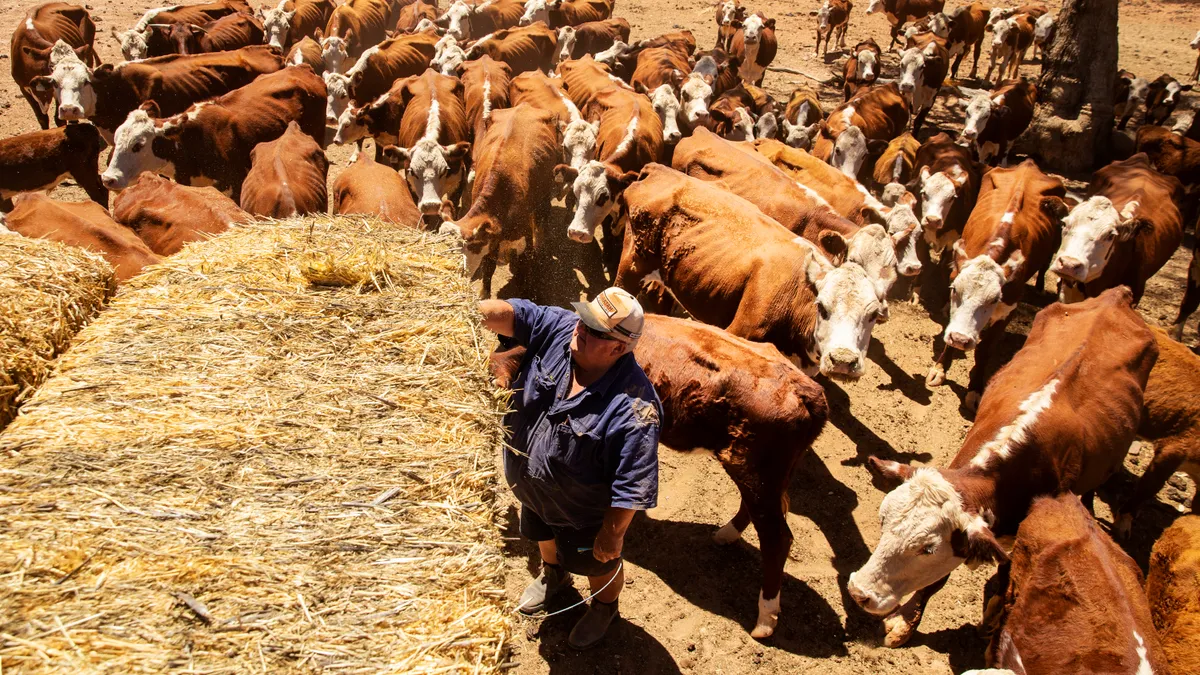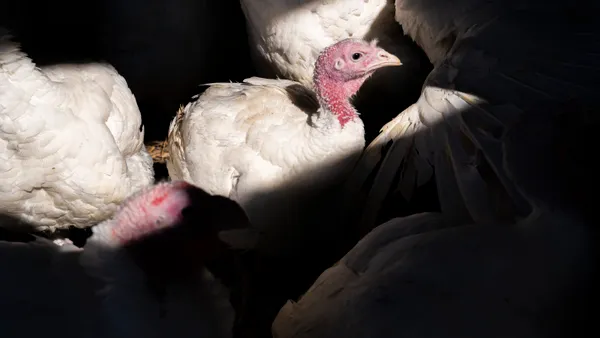Dive Brief:
- Cargill announced the development of a new methodology to track and measure methane emissions from cows, allowing producers to also better understand the impact of feed supplements.
- The agriculture giant said it is Gold Standard-certified, which requires alignment with at least three of the United Nations’ Sustainable Development Goals. The methodology can also be recognized in corporate value chains for food CPG companies — in which companies track their Scope 3 emissions, which are produced indirectly in the food supply chain — Cargill said.
- The effort signals continued investment from the beef industry in lowering its carbon footprint, with rising interest in feed additives as a path forward. Livestock production contributes 14.5% of total manmade greenhouse gas emissions, with beef making up the largest share.
Dive Insight:
Meat makes up 60% of the global share of emissions from the food supply chain, according to a 2021 University of Illinois study. Beef makes up a quarter of the industry’s total carbon footprint — primarily caused by the highly potent greenhouse gas methane, which is released through burping and manure.
Because of this, bringing down the emissions caused by beef production is especially challenging. Feed additives are championed by some in the industry as an effective solution because it prevents methane fermentation within the animals.
Cargill said its own feed additive, SilvAir, which it introduced last year, can reduce methane in cattle by up to 10% without impacting performance.
Cargill said its framework can give producers more ease and accuracy when tracking the methane emissions of their cattle. The company also touted the potential financial benefits for farmers who utilize it. Gold Standard’s Verified Emissions Reductions — which producers can achieve through adopting the methodology — are able to be traded in carbon markets, Cargill said.
“As part of our methane reduction priorities, this methodology is a key step toward opening new possibilities to reduce GHG emissions in the beef supply chain,” Joanne Sharpe, Cargill’s global ruminant sustainability lead, said in the press release.
Other meat processors and agriculture companies are experimenting with feed additives as a way to drive down methane emitted on their farms.
In 2021, beef giant JBS and ingredients producer Royal DSM announced they were partnering to use a feed additive, Bovaer, which the companies claimed reduces methane produced by cattle by 90%. DSM said earlier this year the additive is ready for wider use after a successful pilot program on dairy farms in the Netherlands.












